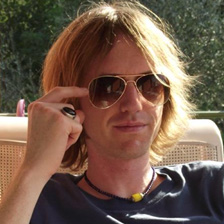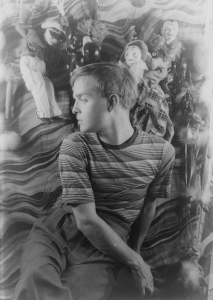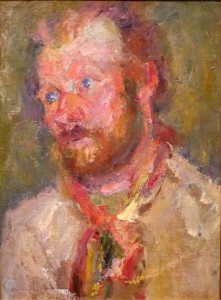Heirlooms
by Brett MarieAs a devourer of fiction, I tend to swallow untruths whole. If a story can hold my attention, if it can make me care deeply enough about its characters, then my disbelief becomes a feather which I will gladly suspend for as long as it takes to see them through their trials. So Gregor Samsa transforms overnight from a travelling salesman to a huge bug in The Metamorphosis. Does that seem like a stretch to you? Not me; with a master like Franz Kafka on hand to distract me with such a compelling story, my feeble brain has hardly enough energy left over to care about biology.
But as easy-going as I tend to be about plot holes and inconsistencies, many modern novels kick off with a whopper so big even I can’t stomach it. Before an author can even get in the words ‘Chapter One’, readers are expected to go along with some variation of this howler:
“All characters appearing in this work are fictitious. Any resemblance to real persons, living or dead, is purely coincidental.”
Of course it’s rarely the author making this claim. Publishers shoehorn those words into the copyright page to discourage litigation from suspicious readers who see their real-life selves somehow reflected in the pages. I understand the legal argument for the disclaimer (twenty words’ worth of ink seems a low price to pay for insurance against a libel suit). But it amazes me how freely this statement is coughed up to cover even the most obvious fictional appropriations of true stories.
Take Holly Golightly, the eccentric Southern child bride-turned golddigging Manhattan socialite in Truman Capote’s Breakfast at Tiffany’s. Perhaps the person who slipped the fictitious persons clause into that novel’s Penguin Classics edition had never heard of Capote’s mother, a Southern child bride who ran off to New York after divorcing Capote’s father when Capote was four. One wonders how effectively that clause could have quelled what Capote himself called ‘the Holly Golightly Sweepstakes’, the rush by half of his New York social circle to claim to be Holly’s real-life inspiration, if it had appeared in bold type in the novel’s first edition.
For readers of David Gilbert’s 2013 novel & Sons, the folks at Fourth Estate expect an even higher level of delusion. Their disclaimer wants us to believe that even the localities Gilbert uses are imaginary – this for a novel set in Gilbert’s native New York City. For legal purposes, they want us to pretend that Gilbert didn’t grow up within blocks of his characters’ Upper East Side homes, didn’t ever wander the exhibits at the nearby Metropolitan Museum of Art where one main character loses himself looking for an elusive love interest, didn’t glean any first-hand insight from growing up in the wealthy society he portrays. They are asking us to view an authentic portrayal of a certain social stratum as pure fantasy, when in fact & Sons was more a kind of homecoming.
 “I wanted to be John Cheever, or Denis Johnson,” says Gilbert of his early attempts at writing. “I wanted to write gritty, Raymond Carver-esque stories about people on the fringe, as opposed to people who are trying to go to the club.” But it took a speech he saw, delivered by his father, Morgan Stanley chairman S. Parker Gilbert, to start his gears turning on the marvellous story of & Sons: “He was delivering a speech one day and doing it very well, and an old friend of his was sitting next to me and she leaned over and told me how it always surprised her to see him perform so well in front of a crowd considering how shy he was as a kid, painfully shy and with a stammer and how he could barely look you in the eye.” This amazed the younger Gilbert. “I always knew he could be socially awkward, but I chalked it up to a certain kind of aloofness. So to imagine him afresh, as an awkward 17-year-old, was very interesting for me, and I started to wonder what it would be like if you could meet your rather inscrutable dad at his most knowable, vulnerable age.”
“I wanted to be John Cheever, or Denis Johnson,” says Gilbert of his early attempts at writing. “I wanted to write gritty, Raymond Carver-esque stories about people on the fringe, as opposed to people who are trying to go to the club.” But it took a speech he saw, delivered by his father, Morgan Stanley chairman S. Parker Gilbert, to start his gears turning on the marvellous story of & Sons: “He was delivering a speech one day and doing it very well, and an old friend of his was sitting next to me and she leaned over and told me how it always surprised her to see him perform so well in front of a crowd considering how shy he was as a kid, painfully shy and with a stammer and how he could barely look you in the eye.” This amazed the younger Gilbert. “I always knew he could be socially awkward, but I chalked it up to a certain kind of aloofness. So to imagine him afresh, as an awkward 17-year-old, was very interesting for me, and I started to wonder what it would be like if you could meet your rather inscrutable dad at his most knowable, vulnerable age.”
It’s absurd to pretend that we fiction writers create characters out of whole cloth. The stories we tell, even fantasy stories set in alien worlds, can only reach our readers on an emotional level if they deal in relatable human emotions. What’s more, a story often gains its real power from whatever reality it has as its root. And the most powerful realities for fiction writers are those that make up their own identities.
Our families are an important part of these identities. If we want to cook up stories that are both true to life and as unique as we are as people, it’s only natural that we should take some ingredients from the real lives of our parents and siblings. It was that impulse that drove Jonathan Franzen to write his most enduring work. Speaking about his breakout novel The Corrections, Franzen told BOMB Magazine: “The most important experience of my life… is the experience of growing up in the Midwest with the particular parents I had.” For the most part Franzen has been vague about specific real-life events he drew from when writing The Corrections, but he has stated that the ‘watershed moment’ between family patriarch Alfred Lambert and his son Chip (if you’ve read the book, you’ll get the pun), came directly from a sad experience he had near the end of his father’s life. Critical acclaim, bestseller status, the National Book Award, all came to The Corrections in part because Franzen was brave enough to relive in writing his father’s painful decline.
The stories we tell, even fantasy stories set in alien worlds, can only reach our readers on an emotional level if they deal in relatable human emotions.”
Britt Canty knows a thing or two about channeling that pain. Readers of Bookanista‘s ‘New Voices’ section might remember her poignant story ‘No Subject‘, about a woman who learns about the sudden death of her father from a hastily-sent email she receives at work. What you might not know is how closely this story hews to Britt’s real-life experience. Before her father’s death, New Plains Review published her eloquent essay, ‘Good Dad, Bad Dad’, about their tumultuous relationship as she grew up, and her struggle as an adult to reconcile the decent, loving father Paul with the tirading bull he became when he drank. Paul’s addiction had saddled Britt with twenty-plus years’ worth of emotional baggage; in writing ‘Good Dad, Bad Dad’, she found a way to cut that baggage loose. “I found that I could transcend that father-daughter relationship,” she now says, “just enough to glimpse him as a man, an imperfect human being, who, like everyone else, was struggling to find happiness and success in this hard world. It was then, through this more objective and compassionate lens, that I could at last forgive my father and fully release all of my lingering feelings of resentment, anger, disappointment.” Following that fateful email (“Paul has died. I am in shock that’s all. Do you know already? I don’t know what to say.”), ‘No Subject’ was a natural progression for Britt as a way to confront her loss; by fictionalising this event in her life, she could bend parts of it to fit a cleaner narrative arc and drive home her grief – her real grief – in a more powerful way. The process required her to stare without flinching at a painful juncture in her life, to make something beautiful, something worthwhile, out of something terrible. I suspect she grew as much as a person as she did as an author by writing it.
For two years after Paul’s death, Britt wrote obsessively about her childhood with him. “I wrote about the moves and the drinking binges, the fights and the police visits. I wrote poems, personal essays and short stories, all having to do with these same subjects. Each time I would attempt to write about something else, I would inevitably find myself drawn back to that tired ground. I thought perhaps all of my efforts would culminate in a memoir that would finally make sense of everything, but that memoir began to feel like a loathsome concrete wall, confining me to this one perspective, the one I’d been inhabiting for my whole life.” But at the very moment she decided to change course and move on, she says, “I rediscovered a paper bag of my father’s things in the back of my closet, behind my clothes, where I’d pushed it away when I first inherited the bag right after his passing. Within these folders of memorabilia, I found my father’s own unpublished manuscript, a memoir. Reading through these pages, which turned out to be a kind of love story about his relationship with alcohol, his perspective opened up to me, and I stepped inside to take a look around.”
Paul’s memoir became the seed for Britt’s current, most ambitious project: a novel told from the viewpoint of a man based on her father. Simply titled Paul, the novel presents us with a good man fighting his demons, keeping them at bay for stretches but ultimately succumbing to them. Paul’s perspective gives this addict’s story a human soul, but this is no mere memoir, and Britt isn’t chained to a single point of view. “I do hope to introduce other perspectives, mine and my grandmother’s,” she says. “This approach has reinvigorated my work, allowing me to explore new terrain while still staying true to the mysteries that fuel my passion for writing.” In Paul, Britt is creating something lasting out of her family tragedy. Through it, Paul’s life becomes more than a cautionary tale; seeing, hearing, feeling Paul’s experiences from inside his head, tracking his thought processes and sharing his decisions as well as letting his addiction pull us through the mud with him, we take on this good man’s tragic life on a far more personal, humanising level than a biography could.
Britt’s fellow New Voice Suzanne Reisman drew from the family well when she let loose the Grim Reaper of Jewish tradition in the otherwise true account of her grandfather’s death. The resulting short story ‘Visiting Hour‘ introduced us to Mottel Rajsman in his last moments in a Chicago hospital. Before sending Mottel off to the afterlife, Suzanne sprinkled in enough titbits about the old man’s many previous brushes with death to hint at a strong character with an intriguing past.
The real-life Mottel had lived an eventful, even harrowing life, and Suzanne had long wanted to share that life with the world – along with the lives of Mottel’s extended family, whom he had left behind in Warsaw when he fled the Nazi invasion of Poland. “I spent a lot of time with him when I was growing up,” she says. “I had always understood that he was the only person in his very large family to survive the Holocaust. I knew that his father had died when he was a teenager, that he was a kosher butcher, that his sisters were married and had kids, what their names were, and that they felt that he should flee the Nazis in 1939, but that Hitler would not kill women and children.” Surely from that premise there was a story worth sharing. But if Suzanne wanted to share it, she faced one major obstacle: her grandfather himself. “He never spoke about his life before 1939, and I was told that I could never ask him about it because it was too painful.” Mottel ended up taking the true stories of his lost family to his grave.

Angel of Death mural in the wooden church at Borovineşti, Argeş county, Romania. Alexandru Baboş/Wikimedia Commons
To be denied the details of her own family history was sad enough, but Suzanne saw that one family as a microcosm of a much larger community whose legacy risked being erased. “There had been about 350,000 Jews living there before World War II, and only 3,500 survived.” And so in a bid to preserve this fading piece of history, she began research for a biography about Mottel, his family, and his long-gone community. For three years she pored over whatever source material she could track down: a Page of Remembrance filed at the Holocaust Memorial Museum in Israel, a smattering of documents her grandparents had accumulated while waiting in displaced persons’ camps to cross over to America, snippets she had picked up in passing while her grandfather was still alive. But these scraps were too disparate to sew together into a coherent whole. If Suzanne was going to tell this story that was so important to her, she would have to resort to her imagination to fill in the enormous blanks.
Suzanne’s exhaustive biographical research served her well. The manuscript of the resulting novel, titled This Eden Called Warsaw, plants us firmly in a 1930s Poland bursting with vivid detail. Walking the cobblestones of Warsaw’s Jewish neighbourhoods, we’re jostled by an enormous cast of characters who hustle between the horses and the market stalls, in and out of the butcher shops, on their way to Temple, to Shabbos – or, in the case of our protagonist the young Orthodox Jew Mottel, off to the barber to shave his beard and sidelocks.
Knowing her grandfather and his temperament, but unable to glean details of his upbringing, Suzanne had quite a blank slate to work on in setting up her novel’s central conflict: the tightrope-walk of a modern Polish Jew navigating between the repression of his family’s traditions and the ever-increasing anti-Semitism of 1930s Eastern Europe. The growing cultural urge toward genocide provided excellent material for a contemporary Jewish-American woman to highlight a historical phenomenon which is by no means relegated to the past. Mottel’s youth was well-timed to suit Suzanne’s political purposes, but it’s the character of Mottel, and his struggle to keep the love of his family while seeking the forbidden love of a woman and acceptance into modern society, which makes the story come alive. We might not have had this if Suzanne hadn’t had her main character standing over her in real life as she grew up.
Without the pull of her ancestors’ story on her moral compass, Suzanne Reisman might not have become the dauntless champion of progressive and feminist causes that she is today. That story came to her in scattered shreds, but for all the ways her work has made her community a better place to live, her neighbours can be thankful for the scraps she got. Likewise, readers can be thankful for the inspiration Britt Canty has taken from her father’s life to help us all understand the often-stigmatised disease of addiction – an understanding which we feel all the more keenly when a novel tangles us up in the nervous system of the addicted.
In & Sons, David Gilbert writes, “Fathers begin life as gods, and end as myths.” The mythology we receive from our parents, grandparents and other ancestors can’t help but shape our point of view. These narratives inform who we are, influencing our actions, the way we react to the world around us. It astounds me, when I think about it, what enormous power these stories have to change our lives. What a tremendous gift we receive when writers retell them, adding, altering, tweaking them to better bring out their meaning. And what a disservice we do when we call them only fiction.
 Brett Marie, also known as Mat Treiber, grew up in Montreal with an American father and a British mother and currently lives in Herefordshire. His short stories such as ‘Sex Education’, ‘The Squeegee Man’ and ‘Black Dress’ and other works have appeared in publications including The New Plains Review, The Impressment Gang and Bookanista, where he is a contributing editor. He recently completed his first novel The Upsetter Blog.
Brett Marie, also known as Mat Treiber, grew up in Montreal with an American father and a British mother and currently lives in Herefordshire. His short stories such as ‘Sex Education’, ‘The Squeegee Man’ and ‘Black Dress’ and other works have appeared in publications including The New Plains Review, The Impressment Gang and Bookanista, where he is a contributing editor. He recently completed his first novel The Upsetter Blog.
Facebook: Brett Marie
@brettmarie1979
Read more from Brett Marie on Bookanista



